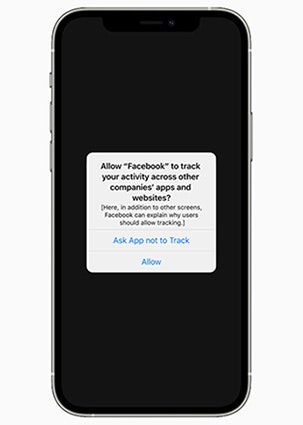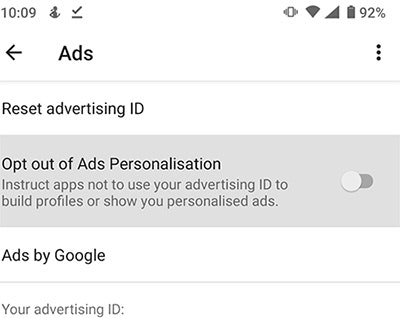
By Nick Gelling
Product Test Journalist | Kaipūrongo Whakamātautau Hautaonga
A new privacy measure from Apple makes it harder for apps to use targeted advertising. Facebook is retaliating, and consumers are stuck in the middle.
Following an iOS update in March or April, App Tracking Transparency (ATT) will apply to all apps on iPhones, iPads and Apple TVs.
ATT requires apps to ask users whether they want to be tracked for advertising purposes, making personalised ads an opt-in service, rather than opt-out. That means the first time an app tries to use the unique ID for Advertisers (IDFA) from your Apple account, you’ll be able to deny that request – similar to how the Covid Tracer app requests permission to use your camera, for example.
If you allow tracking, nothing will change at all – that’s the status quo. If you deny, the ads you see through that service will be less personalised, because it can’t infer what you like based on your activity elsewhere. Ad platforms are scared that swathes of consumers will choose not to be tracked, slashing revenue.
Opposition from Facebook

As a company that makes billions of dollars selling personalised advertising, it’s no surprise that Facebook has come out strongest against the move. However, in an attempt to get the public on side, Facebook is arguing that small business owners will be the real victims, because their Facebook and Instagram advertising won’t be as effective. The social media giant also has dire predictions of paywalls flying up around the internet, as sites that’ve previously relied on advertising need new ways to support themselves.
Facebook has no choice but to follow the new rule once Apple starts enforcing it. However, Facebook’s apps will pre-empt the mandatory system prompt with pop-ups of their own, featuring friendlier language and an explanation of the “benefits” of a mega-corporation following you across the internet. You might have even seen these already – Facebook has begun trialling the pre-message messages in its apps, fine-tuning wording before the rule change kicks in.
What about Android?

It’s unlikely that Google, who ultimately controls the Android operating system, will be introducing similar measures for fear of damaging its own advertising business. With that said, Google is doing some good work around web browser privacy by removing third-party HTTP cookies, the primary means of tracking users on a browser, from Chrome next year. The “don’t be evil” motto might still be alive somewhere, under all that corporate greed.
In its own iOS apps such as YouTube, Google has responded to Apple’s change by switching from IDFA to a different advertising method that doesn’t require consent (which, to be fair, has better privacy control).
Regardless, I’d encourage Android users to consider opting out of this sort of tracking too. You can do that by going to Settings > Google > Ads and turning on the “Opt out of ads personalisation” option.
Is any of this helpful?
In my view, Apple is doing the right thing by consumers, or at least attempting to. More transparency helps us make informed decisions about data, but I’d prefer if there was more context to help consumers understand what they’re deciding.
Facebook’s conduct, on the other hand, is disingenuous. Its prompt comes off as biased and could deceive users. While it’s hard to predict how this saga will affect the future of advertising, it can never be a bad thing to offer consumers control over how their information is used.
Unfortunately, users are often stuck in the middle while Silicon Valley corporations jockey for profits and clout, and it’s something we’ll see even more of as tech companies get bigger and more powerful.